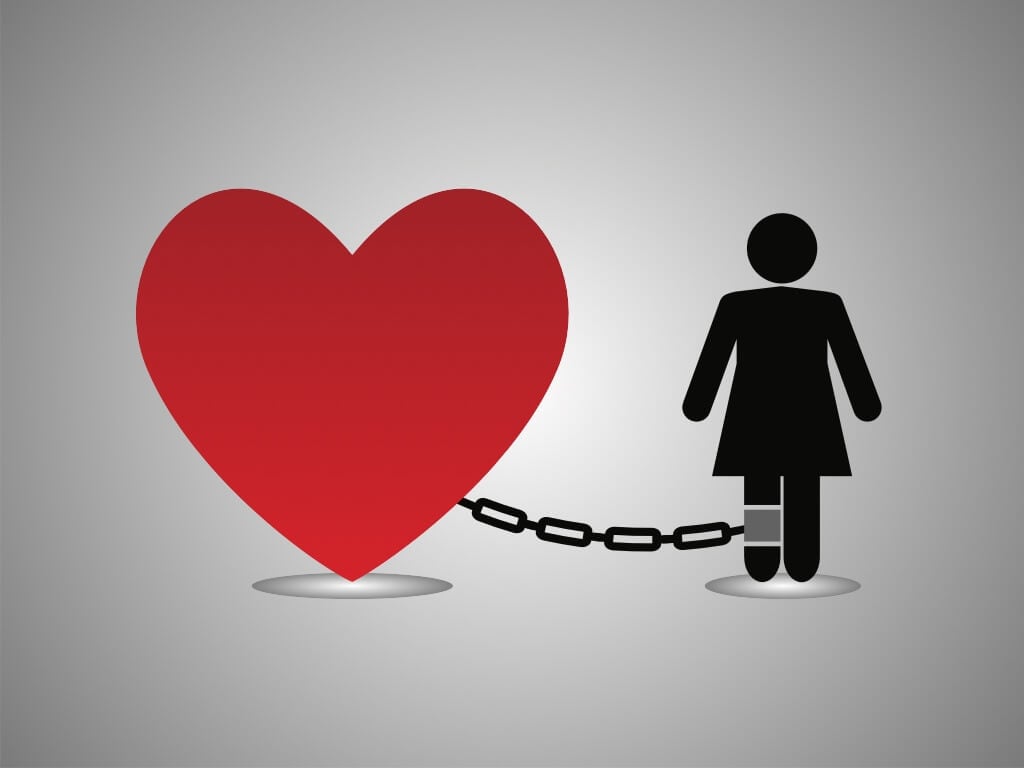Since humanity became humanity, love has been a centerpiece around which everything we know revolves around. Arts, sciences, societies, cultures, every idea, every concept, every motion – they all came from an honest desire to enrich and better our lives.
The most amazing thing about it is that it often only takes a small dose of love to make a person inspired, elated, and fully dedicated to becoming the best version of themselves. There’s no denying it: love is intoxicating.
However, for individuals with specific backgrounds and traits, the desire can be overwhelming and all-encompassing. So much so, in fact, that they cannot help but make the pursuit of love their one and only goal, effectively turning into the very definition of “what is a love addict”, as explained by some. At PIVOT, we steer clear of such terms, preferring attachment dysregulation. However, we do find it necessary to address the commonplace term and dispel its significance.

Is Love Addiction A Real Thing?
Love addiction (also referred to as “pathological love”) is indeed recognized by modern psychology as a real phenomenon. However, despite active research on the topic and literature to back it up, it remains a subject of debate and a healthy dose of scrutiny.
The reason for this controversy rests primarily in the fact that love “addiction” is not addiction, in a general sense of the word, despite it being categorized under the umbrella of “behavioral addiction.”
While it shares many similarities with “real” addiction (i.e., Substance Use Disorder or SUD), this phenomenon also features many differences that make it pivot away from the traditional definition of SUD and more toward the realm of behavioral disorder.
Addicted To Love vs. Substance: A Side-By-Side Comparison
To better understand love addiction, both as a term and a phenomenon, we’ll do a side-by-side comparison showcasing both the similarities and distinctions between love addiction and SUD.
Similarities
- Craving & dependence: Both behavioral patterns involve intense craving that often leads to dependency.
- Compulsive behavior: In both instances, craving and dependency typically lead to a cycle of borderline obsessive pleasure seeking.
- Daily life disruption: The prioritization of compulsive behaviors over every other aspect of personal and professional life is the hallmark of addiction.
- Withdrawal: Once the object of their attachment is absent, the withdrawal symptoms begin to emerge, potentially leading the person to rebound and start the cycle anew, only, this time, with even greater intensity.
Differences
- The object of attachment:
- Love addiction: The focus is on the emotional attachment, with the compulsive need for affection, attention, and validation. Considering that the object of fixation is an abstract concept of love, it is challenging (not impossible) to diagnose or treat unhealthy behavior.
- SUD: The object of craving is tangible (i.e. a specific substance, such as a drug or alcohol), providing a solid ground for diagnosis and treatment.
- Withdrawal type:
- Love addiction: Withdrawal symptoms are primarily emotional, manifesting as intense feelings of loneliness, emptiness, or abandonment. However, in some instances, they often escalate to severe anxiety and depression.
- SUD: Symptoms may include psychological and physiological issues, ranging from mild nausea and irritability to severe depression and life-threatening health problems.
- Treatment options:
- Love addiction: Treatment typically entails coaching, psychotherapy, counseling, and support groups, with the primary goal being addressing underlying emotional issues that led to adopting unhealthy relationship dynamics.
- SUD: Treatment commonly incorporates a variety of approaches, ranging from psychotherapy and counseling to medication-assisted treatment (MAT), that target both psychological and physiological aspects of addiction.
Learn More About Love Addiction

Aftermath Of Love Addiction Explained
Can You Be Addicted To A Person?
According to addiction specialists, an individual can become addicted to virtually anything that makes them feel good, even another person. The reason for this lies in the way addiction works on the most basic biochemical level.
In short, when a person gets a “hit,” whether it be a substance (e.g., drug, alcohol) or a behavior (e.g., love, affection), the body floods the brain with so-called “happy chemicals”, such as endorphins, dopamine, serotonin, and oxytocin.
Consequently, after every “hit”, the brain’s reward system gets “rewired” to associate that feel-good state with what caused it. However, since happy chemicals released this way far exceed the normal amounts, getting anything less triggers a compulsive need to seek out and engage in the addictive substance or behavior.
This is why love addiction can be perceived as akin to traditional substance use disorders: both those afflicted by SUD and intoxicating love experience intense highs and lows. The difference being, the former manifests primarily in a psycho-physiological manner, while the latter tilts toward emotional.
What Is The Meaning Of Love Addiction?
As defined by M. Sanches and V.P. John in their paper “Treatment of love addiction: Current status and perspectives”, love addiction is:
- “A pattern of behavior characterized by a maladaptive, pervasive and excessive interest towards one or more romantic partners, resulting in lack of control, the renounce of other interests and behavior, and other negative consequences.”
In simpler terms, being addicted to love entails an intense craving or, rather, a compulsive need for love, attention, and connection. However, in this instance, the desire is all-encompassing. It goes so far beyond mere infatuation or passion that it becomes unhealthy and even destructive to the person exhibiting this behavior.
What Is Love Addiction In A Relationship?
Framing everything said up until this point in the context of a romantic partnership, we can say that:
- Love addiction in a relationship is a dysfunctional pattern of behavior where one or both partners exhibit obsessive and/or compulsive tendencies in the pursuit and perpetuation of love and affection.
This can manifest itself in a number of ways, including:
- The overwhelming need for constant reassurance, validation, and attention.
- Dependance on the partner for a sense of identity and self-worth.
- Compulsive desire to maintain the relationship, even at the expense of one’s own well-being.
However, while the driving force behind this behavior may be well-intentioned, the results are often counterproductive. Relationships built on these premises typically foster codependency, jealousy, and lack of individuality instead of nurturing the healthy, independent, and, above all, balanced connection vital for mutual satisfaction, personal growth, and long-term sustainability.
Curious How Anxiously You May Be Attaching In a Particular Relationship?
What Does It Mean To Be Addicted To Love?
Being addicted to love means exhibiting borderline obsessive dependence on romantic relationships for a sense of identity and self-worth. In this state, an individual usually relies on their partner as a sole source of validation and emotional support, with everything and everyone else (including themselves) being relegated to the background.
What Does Love Addiction Feel Like?
The best description of love addiction would be “emotional rollercoaster”, as key characteristics of this state are euphoric highs and devastating lows. For individuals caught in this endless loop, the highs of love are so intoxicating that they momentarily drown out anything and everything else.
However, on the other end of that spectrum is vulnerability, a constant fear of rejection and abandonment so prevailing, so overwhelming that it renders the person virtually incapable of doing anything except looking for the next “fix”.
In fact, the desperation for connection and fear of being alone become palpable to the point of driving individuals to compromise their values and sacrifice their well-being, settling for far less than they deserve just so they can get that feeling of intoxicating love for a fleeting moment.

Learn How To Stop Being Addicted To Love With PIVOT’s Help
Navigating the complex realm of love addiction can be challenging and confusing. Fortunately, you don’t have to do it alone! With PIVOT’s help, your journey to healthier relationships and stronger connections can be an inspiring one.
At our modern Glass House Retreat, a team of experienced coaches offers compassionate guidance, giving you the tools to unveil what is love addiction in a relationship, how to recognize the signs, and learn the best ways to overcome it.
In a soothing and safe environment, you’ll have the opportunity to embark on a journey of self-awareness and empowerment, either through group programs or individual coaching sessions, tailored to your specific needs. Reach out to us today!
Still reading? Discover Inspiring Journeys to Healing – Click Here to Read Real Love Addiction Recovery Stories!

